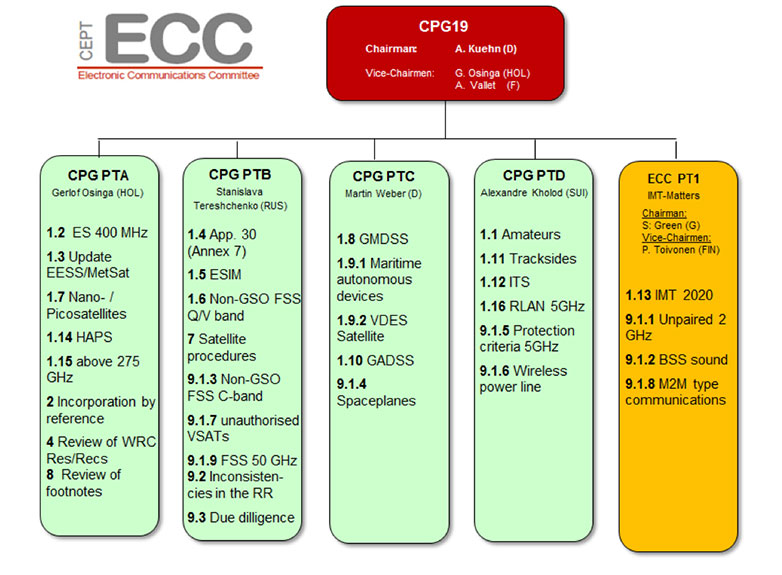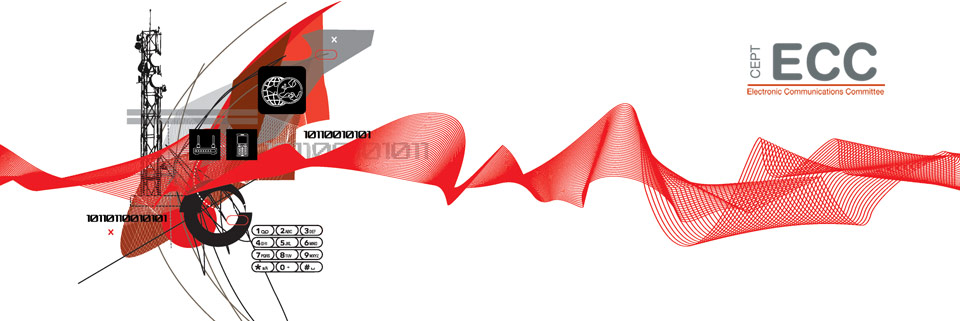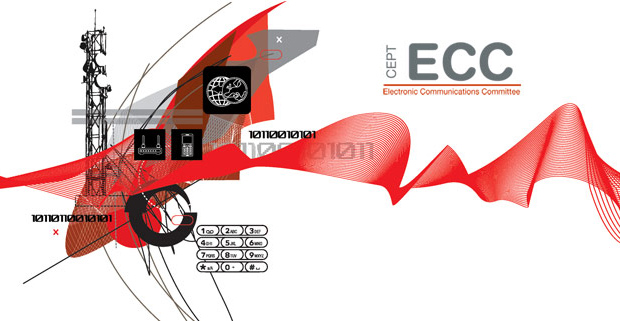CEPT starts preparation process towards World Radiocommunication Conference 2019
Just six months after signing the final acts of the 2015 World Radiocommunication Conference (WRC-15)1, the preparation cycle for the next WRC has started.
Over the next three years this process will include coordination and agreement of CEPT positions by the European administrations. It will set the basis for negotiations with other regional organisations before and during the four weeks of intense work at the ITU World Radiocommunication Conference in 2019 (WRC-19). The future Conference will address a number of questions within the Radiocommunication sector - of both worldwide and regional relevance. Attendees can expect discussions on particular issues of digitalisation, 5G, satellite communication, digital divide, global maritime and aeronautical transportation.
A framework in place
The long and exciting process of CEPT preparations for WRC-19 started in April 2016. As it has been in the past, it is the responsibility of the Conference Preparatory Group (CPG) of the ECC to prepare for WRC-19 and to develop CEPT positions and proposals for the Conference.
The CPG, under the chairmanship of Mr Alexander Kühn (Germany), had its first meeting in Bonn, Germany, 12 to 14 April. The meeting agreed on the structure, and appointed Mr Alexandre Vallet (France) and Mr Gerlof Osinga (The Netherlands) as CPG vice-chairmen. Both have taken specific active responsibilities within the preparation process.
The CPG further decided to create four CPG Project Teams under the chairmanship of Mr Gerlof Osinga (The Netherlands), Ms Stanislava Tereshchenko (Russian Federation), Mr Martin Weber (Germany) and Mr Alexandre Kholod (Switzerland). The CPG followed a well-established approach for the allocation of tasks and the distribution of WRC-19 Agenda items amongst these Project Teams.
The CPG also agreed to assign a number of WRC-19 Agenda items, for example, spectrum for IMT 2020, to ECC Project Team 1. This decision was made in order to work efficiently and continue to use the already established working framework for mobile (IMT) issues.
The structure of the CPG seeks to balance the workloads of the respective Project Teams, to enable an effective CEPT support to the activities, and to offer an efficient platform for the preparation of the ITU-R activities on the way to WRC-19. It also takes account of possible interaction with other ECC entities in a timely manner.
An overview of the CPG-19 structure and the distribution of WRC-19 Agenda items between the Project Teams are given below:
Structure of the CPG

Important topics
One of the most debated topics during the 2015 Conference was the development of the Agenda for WRC-19. This item was a huge success for CEPT as most of the European proposals were included into the next Conference agenda.
Some of the important Agenda items to be addressed at the 2019 Conference include:
WRC-19 will consider the identification of frequency bands in the millimetre wave length for the future development of International Mobile Telecommunications (IMT). These will include possible additional allocations to the mobile service. The assigned Resolution of WRC-15 focuses on specific frequency bands above 24 GHz, as proposed by CEPT. They will be assessed for worldwide harmonisation for 5G.
WRC-19 will consider issues related to wireless access systems, including radio local area networks (WAS/RLAN), in the frequency bands between 5 150 MHz and 5 925 MHz to accommodate for possible mitigation techniques if any.
In order to accommodate evolving Global Flight Tracking applications, WRC-19 will consider regulatory actions for the development and implementation of a Global Aeronautical Distress and Safety System (GADSS).
WRC-19 will study possible regulatory actions to support the modernisation of Global Maritime Distress Safety Systems (GMDSS).
WRC-19 will address spectrum needs for telemetry, tracking and command to accommodate the growing number of satellites with short mission duration.
One challenge of WRC-19 at this stage will be to find the right balance for frequency bands in which several communities (satellite, mobile, HAPS) are interested. In some cases all of them are aiming to enhance the availability of broadband connections.
Ready, steady, go
CPG and its Project teams are open for all interested stakeholders within CEPT, in particular those from industry. The aim is to collect all relevant views for the decisions of European administrations.
With the structure and distribution of work in place, CEPT will now set the wheels in motion within its CPG and initiate all necessary preparations for WRC-19. This includes not only finding common agreement within CEPT, but also using the lessons learned from previous conferences. It is essential to exchange views and cooperate with the five other regional groups representing the key CEPT partners in various regions of the world. Overall, we want to find common solutions.
Further information on CPG can be found here.
Alexander Kühn, Chairman of the ECC’s Conference Preparatory Group
Stella Lyubchenko, European Communications Office, Spectrum Expert
1 Results of WRC-15 can be found in our article here



